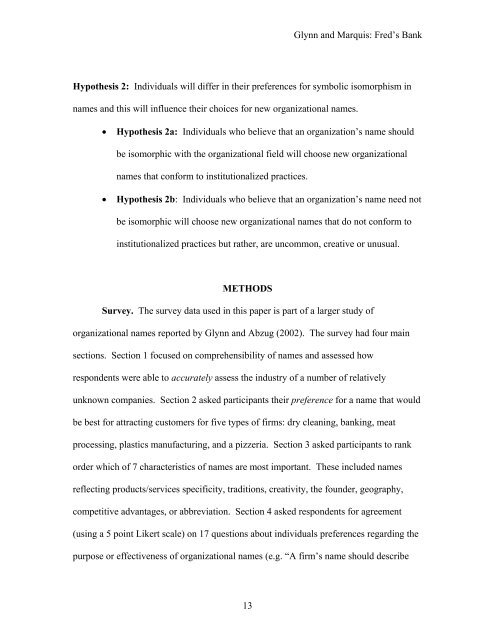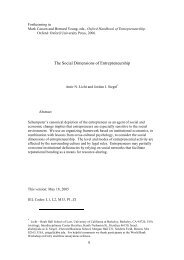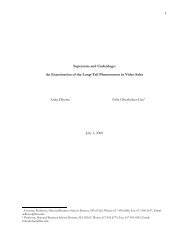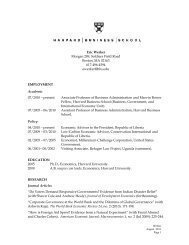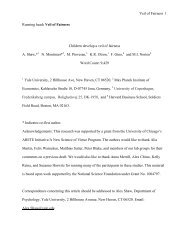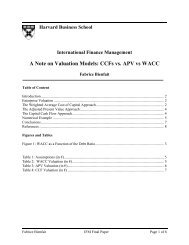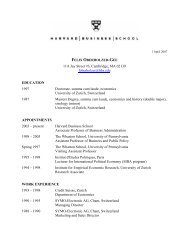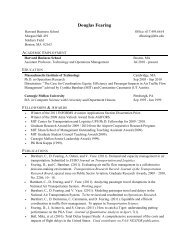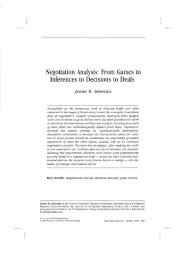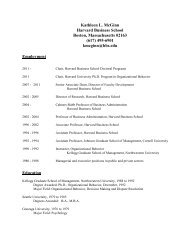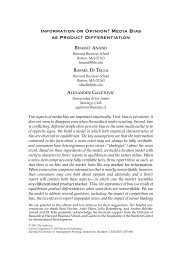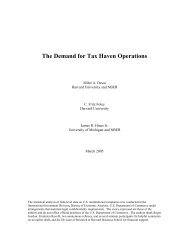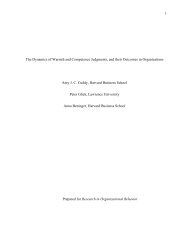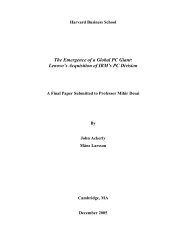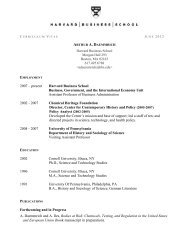FRED'S BANK: HOW INSTITUTIONAL NORMS ... - People. hbs .edu
FRED'S BANK: HOW INSTITUTIONAL NORMS ... - People. hbs .edu
FRED'S BANK: HOW INSTITUTIONAL NORMS ... - People. hbs .edu
You also want an ePaper? Increase the reach of your titles
YUMPU automatically turns print PDFs into web optimized ePapers that Google loves.
Glynn and Marquis: Fred’s Bank<br />
Hypothesis 2: Individuals will differ in their preferences for symbolic isomorphism in<br />
names and this will influence their choices for new organizational names.<br />
• Hypothesis 2a: Individuals who believe that an organization’s name should<br />
be isomorphic with the organizational field will choose new organizational<br />
names that conform to institutionalized practices.<br />
• Hypothesis 2b: Individuals who believe that an organization’s name need not<br />
be isomorphic will choose new organizational names that do not conform to<br />
institutionalized practices but rather, are uncommon, creative or unusual.<br />
METHODS<br />
Survey. The survey data used in this paper is part of a larger study of<br />
organizational names reported by Glynn and Abzug (2002). The survey had four main<br />
sections. Section 1 focused on comprehensibility of names and assessed how<br />
respondents were able to accurately assess the industry of a number of relatively<br />
unknown companies. Section 2 asked participants their preference for a name that would<br />
be best for attracting customers for five types of firms: dry cleaning, banking, meat<br />
processing, plastics manufacturing, and a pizzeria. Section 3 asked participants to rank<br />
order which of 7 characteristics of names are most important. These included names<br />
reflecting products/services specificity, traditions, creativity, the founder, geography,<br />
competitive advantages, or abbreviation. Section 4 asked respondents for agreement<br />
(using a 5 point Likert scale) on 17 questions about individuals preferences regarding the<br />
purpose or effectiveness of organizational names (e.g. “A firm’s name should describe<br />
13


